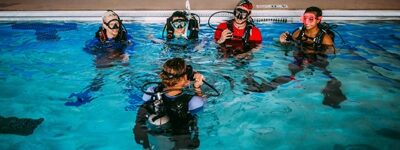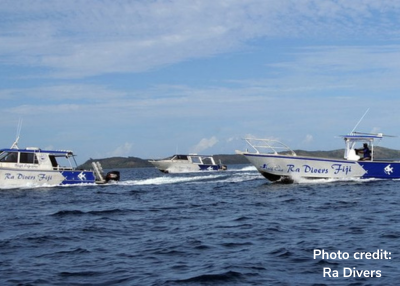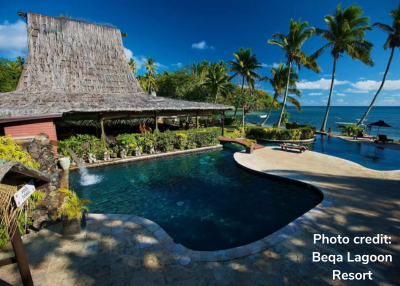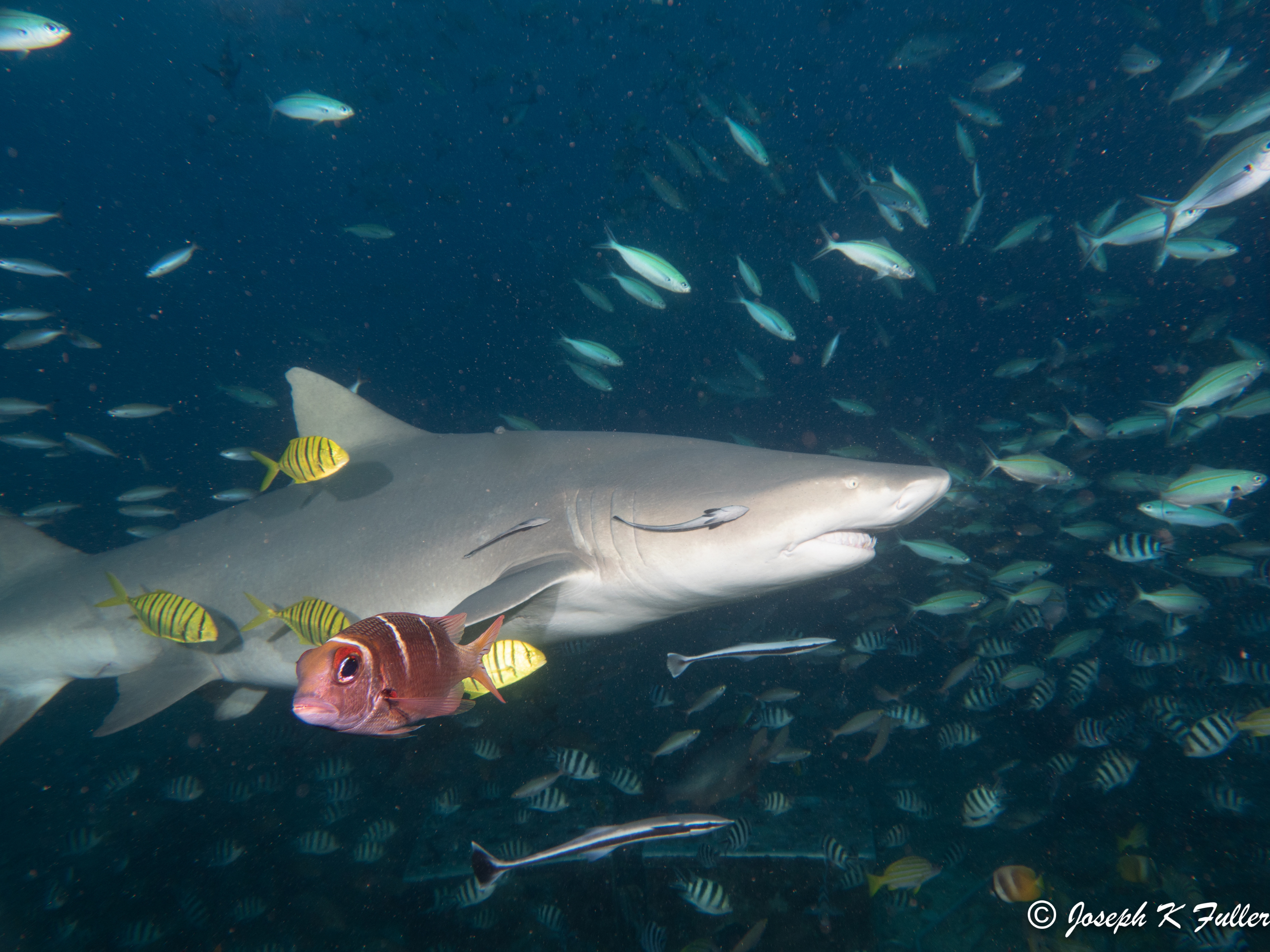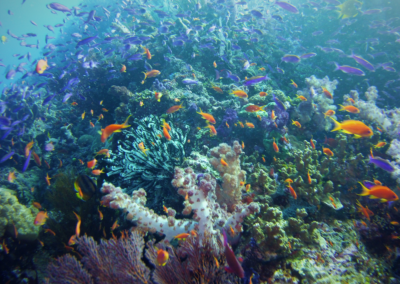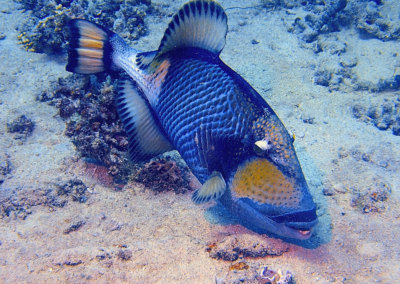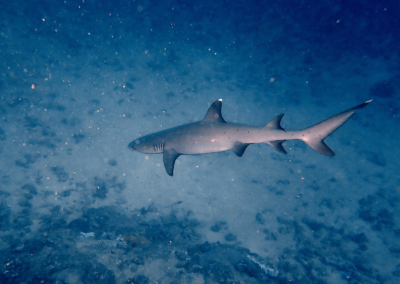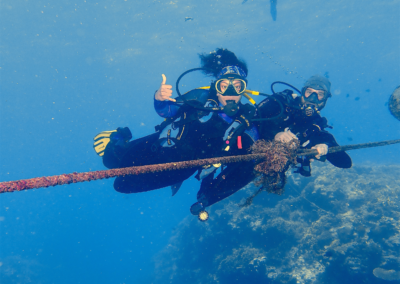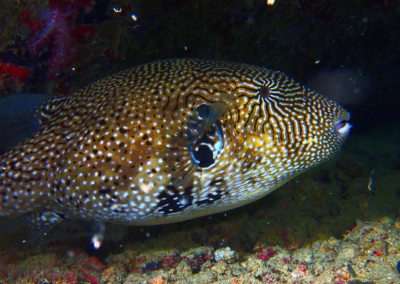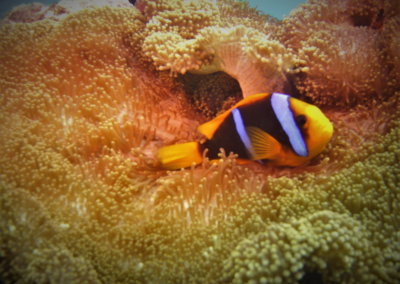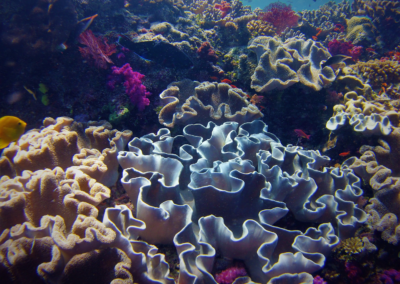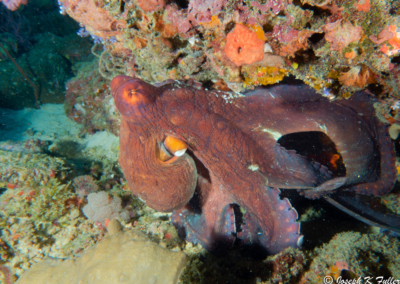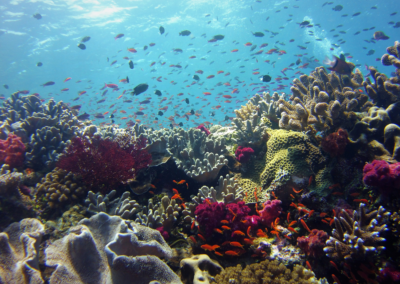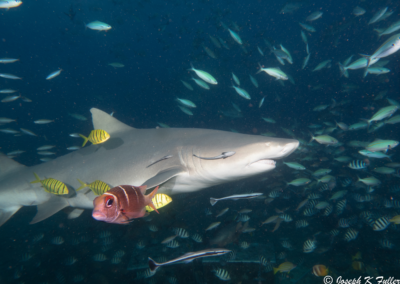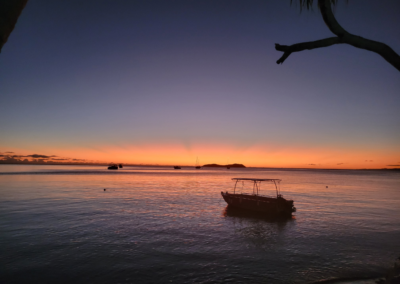Scuba Diving Trips in Fiji
Upcoming Trips
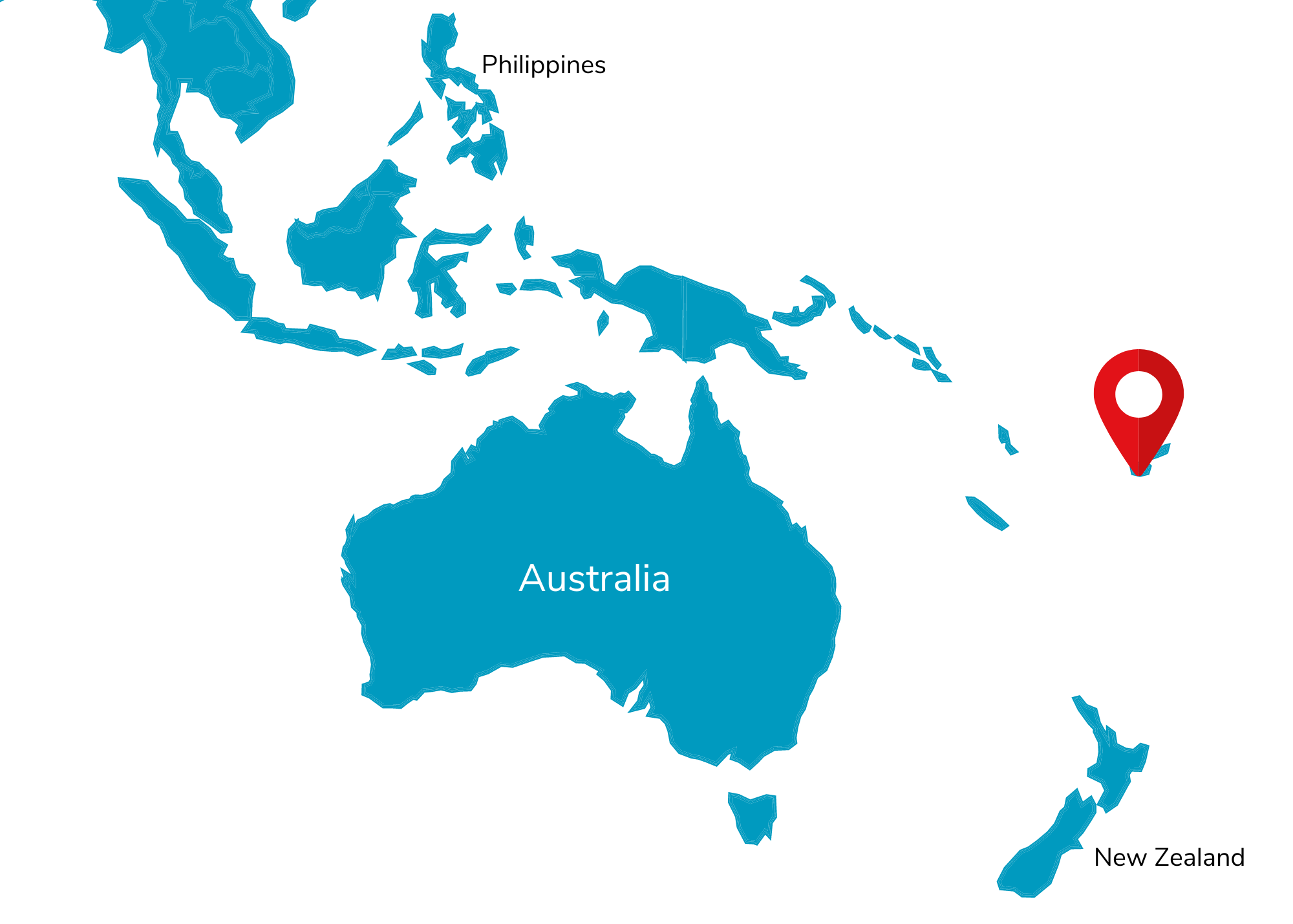
Fiji is a group of islands located in the South Pacific Ocean, known for its stunning natural beauty, friendly people and rich cultural heritage. It consists of over 300 islands, of which only about a third are inhabited. The two largest are Viti Levu and Vanua Levu.
Fiji is a popular tourist destination, attracting visitors from around the world who come to enjoy its pristine beaches, crystal-clear waters and lush tropical landscapes. The islands offer a wide range of activities, including snorkeling, diving, hiking and cultural tours.
Fijians are known for their warm hospitality and welcoming nature, and visitors often comment on the friendly and relaxed atmosphere of the islands.
What To Expect
Scuba Diving
Scuba diving in Fiji is a world-renowned experience, offering some of the best dive sites in the world. With crystal clear waters, abundant marine life and diverse coral reefs, Fiji is a paradise for divers of all skill levels.
The popular Vatu-I-Ra Passage is a marine protected area famous for its abundance and diversity of marine life—which is arguably the best diving in Fiji.
Dive sites around Fiji are home to colorful soft corals, sharks, turtles and a variety of fish species. Fiji’s warm tropical climate also makes it an ideal year-round diving destination. Whether you’re a beginner or an experienced diver, Fiji offers an unforgettable underwater adventure.
You might see:
- Hammerheads
- Nurse sharks
- Reef sharks
- Bull sharks
- White tip sharks
- Black tip sharks
- Tiger sharks
- Humpback whales
- Sperm whales
- Angelfish
- Butterflyfish
- Turtles
- Dolphins
Recommended Specialty Courses
- Waves, tides & currents
- Photo & video
- Fish identification
- Shark ecology
- Deep diving
- Perfect buoyancy
- Nitrox
![1[1] Grand Cayman](https://www.diventures.com/wp-content/uploads/2023/04/11-13.png)
Conservation Efforts
Sharks are one of the main attractions in Fiji which is why the Shark Conservation Project works to protect them. The Shark Conservation Project was created in 2014 to protect the shark population in the ocean around Fiji. Volunteers are able to assist scientists on a variety of projects, including shark dives. Fiji also performs coral restoration and coral conservation efforts.
Culture
The culture in Fiji is a unique blend of indigenous traditions and modern influences, reflecting the country’s complex history and diverse population. Visitors to Fiji can experience this rich cultural heritage through traditional ceremonies, music, dance and cuisine, as well as through interactions with the friendly and welcoming Fijian people.
![2[1]](https://www.diventures.com/wp-content/uploads/2023/04/21-13.png)
Attend a Kava Ceremony
Kava ceremonies are an important part of Fijian culture, and they are often included in cultural experiences for visitors. Kava is a traditional drink made from the root of the yaqona plant and the ceremony is usually led by a chief or another respected member of the community. During the ceremony, participants sit in a circle on the floor and take turns drinking from a communal bowl.
![3[1] San Gervasio](https://www.diventures.com/wp-content/uploads/2023/04/31-12.png)
Garden of the Sleeping Giant
The Graden of the Sleeping Giant is a wonderful spot to spend the day exploring along the canopy-covered boardwalk, through gorgeously landscaped lawns. There are also lily ponds with fountains and croaking frogs that take you into the heart of the dense rainforest. The garden is home to over 30 types of orchids, along with a variety of other plants.
![4[1] San Gervasio](https://www.diventures.com/wp-content/uploads/2023/04/41-7.png)
Sabeto Hot Springs and Mud Pool
The hot springs and mud pool are fed by natural geothermal springs that are rich in minerals such as silica, magnesium and calcium, which are believed to have therapeutic properties. Visitors can enjoy a relaxing soak in the hot springs or apply the warm mud to their skin for a natural spa treatment. The mud is supposed to leave the skin feeling soft and rejuvenated.
![5[2] San Gervasio](https://www.diventures.com/wp-content/uploads/2023/04/52-4.png)
Fiji Museum
To get a better understanding of Fiji’s culture and history, head to the Fiji Museum. The museum has a wide range of exhibits that showcase the cultural heritage of Fiji and the Pacific region. The collection includes archaeological artifacts, Fijian arts and crafts, photographs and other historical objects that tell the story of Fiji’s past.
What prior travelers say
“Fiji is a favorite destination of mine. The people are welcoming, you feel as if you are family, making it hard to go home. The resort is surrounded by lush greenery and flowers, the rooms are spacious and comfortable and the staff creates a relaxing atmosphere. North Fiji diving is one of the top destinations in the world with some of the most colorful soft corals large pelagics and small interesting critters.”
Traveler Photos
Know Before You Go
Dive Insurance
Dive insurance is required on all Diventures trips. We recommend purchasing DAN dive insurance.
Travel Insurance
Travel insurance is not required but is highly recommended for all Diventures trips. We recommend purchasing DAN trip insurance.
Temperature
The dive season in Fiji is year-round. Between July and December, the water is at its clearest (approx. 70-130 feet), however, this period is when the water is coolest averaging around 80º-83ºF. It is highly suggested to bring a 3mm wetsuit with you, 5mm if you get cold easily.
Electricity
The current in Fiji is 240 volts AC 50Hz with three-pin power points – the same as in Australia and New Zealand. You will need to bring adapters with you
Passport
Must be valid 6 months beyond the dates of your trip.
Banking
ANZ operates a 24-hour service at Nadi International Airport’s Arrival Concourse. It is suggested to exchange currency with your bank prior to departure, however, you can exchange your money at the airport upon arrival.
Credit Cards
International cards are welcomed by most hotels, restaurants, shops, car rental companies and tour operators. American Express is sometimes not accepted due to high fees.
Currency
The Fijian dollar has standard decimal denominations between 1.5 and $50. Anything below $2 is a coin and $2 and above is a note. There is no limit to the amount of money to be brought in and visitors are allowed to take out currency up to the amount imported.
Communications
Most hotels have direct dialing facilities. For inbound calls, the international IDD country code for Fiji is 679 and there are no area codes. Outbound international calls from Fiji use a dial-out code of 05 followed by the country code and telephone number for the number being dialed.
Mobile customers are advised to check with their network operators for their roaming status before traveling, as roaming capability must be ‘turned on’ in your home country
You can also pay to use the wifi offered at the resort for messaging, facetime, skype and Facebook. Make sure to keep your phone in airplane mode and turn on the wifi so you avoid any roaming charges.
Fijian Culture
The Fijians are pretty easy-going, but if you are invited into a village, wear modest clothing and take off your hat (wearing one is an insult to the chief) when in the village. Leave your shoes outside the door when entering a home and keep in mind that it’s also insulting to touch someone’s head – which can be tempting when you are surrounded by wide-eyed, smiling children.
Be prepared to shake hands and answer personal questions like, where are you from, are you married, how many children do you have… and so on.
Fiji Religion
A multi-racial, multi-cultural nation, the population of Fiji is made up of significant numbers of followers of all major religions. Visitors will find Christian churches, mosques, Sikh and Hindu temples throughout the country.
Dress
Casual for both night and day. Pack t-shirts, shorts, light cotton dresses and swimwear. Jeans will be too hot and uncomfortable. For cooler evenings or for out on the water, a jacket is a good idea. Sunscreens and hats are a must.
Tipping
While tipping is usually not customary in Fiji, we do suggest contributing to their “Christmas fund” Box. Instead of tipping weekly the company gives all the staff a Christmas bonus.
Need help packing?
We can’t pack for you, but we can share our packing list and travel tips.

